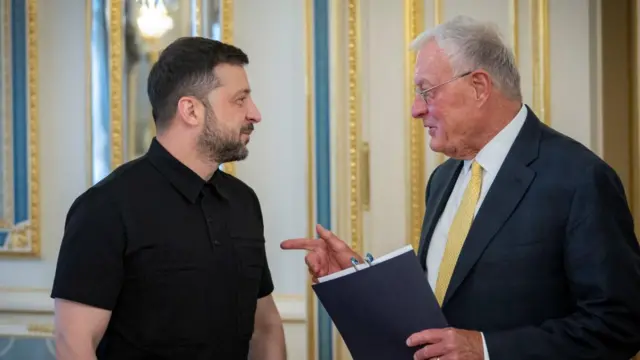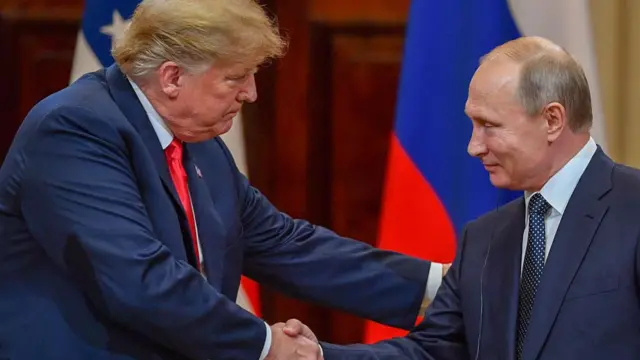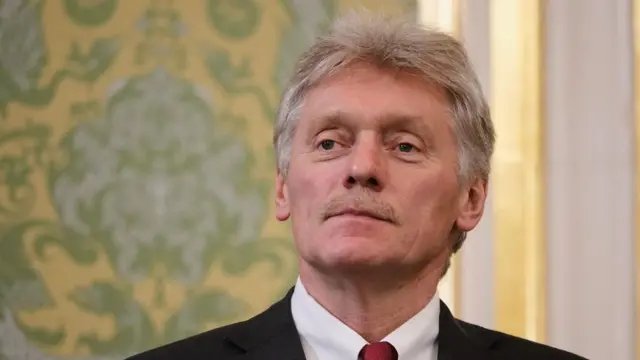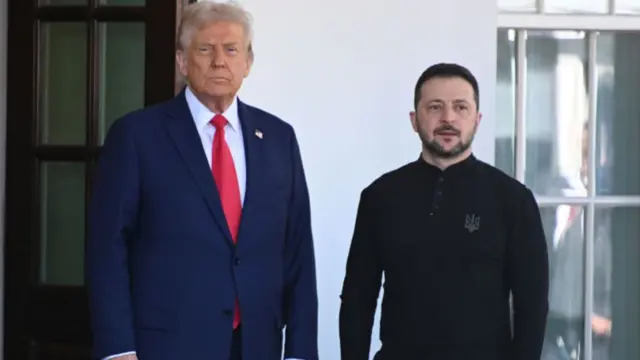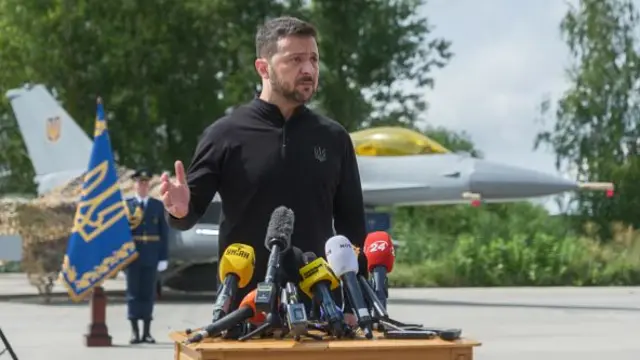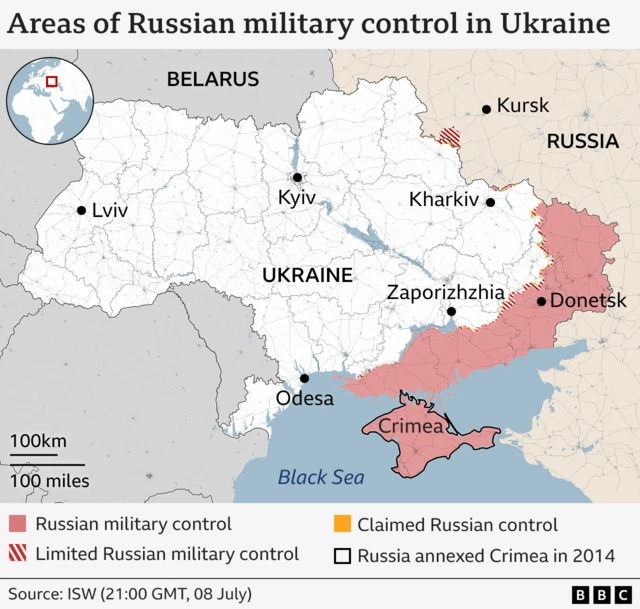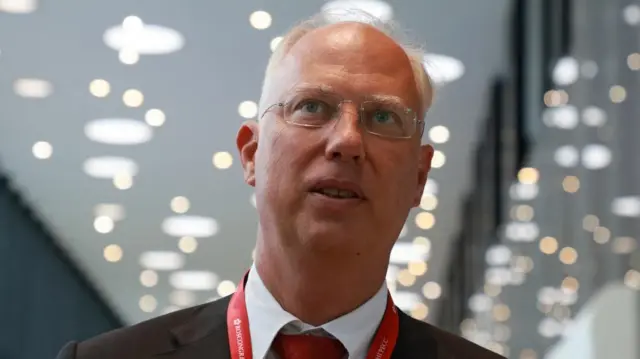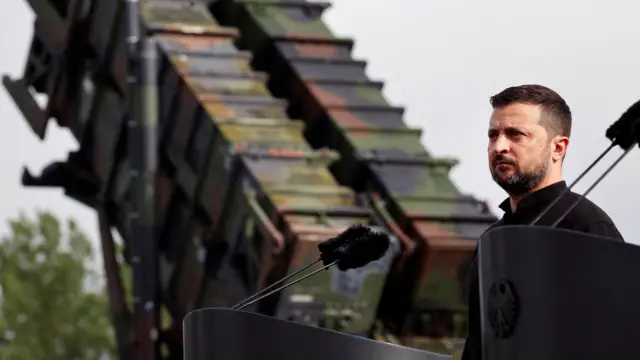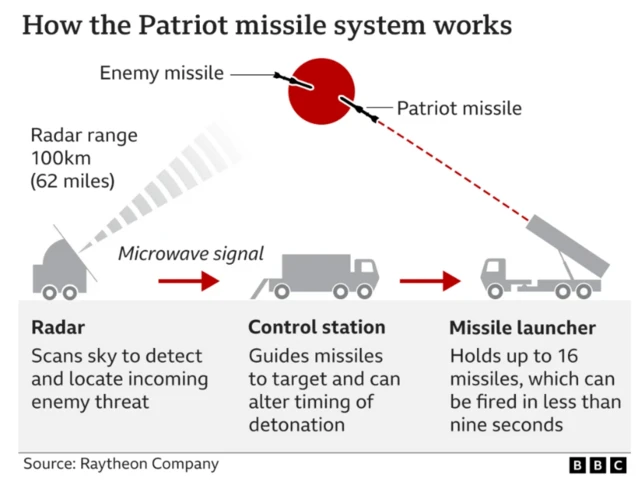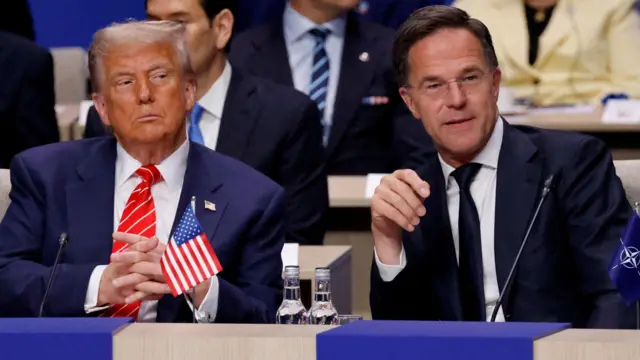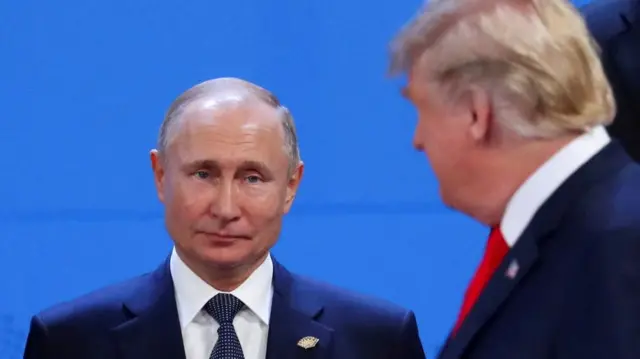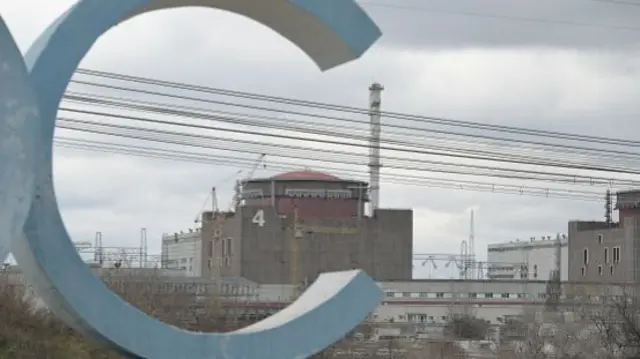Air raid sirens heard in Kyiv moments after meeting with US special envoypublished at 12:51 BST 14 July
 Charlotte Gallagher
Charlotte Gallagher
Reporting from Kyiv
An air raid alert sounded almost as soon as pictures were released of President Zelensky meeting the US special envoy to Ukraine, Keith Kellogg.
Ukraine says it was a Russian fighter jet taking off.
The alert was over in minutes, but underlines - particularly to VIP visitors like Kellogg - the ongoing threat in the skies over Ukraine.
Ukrainians are used to these alerts, many have a smartphone app which warns them, and you can hear the public sirens blaring out.

